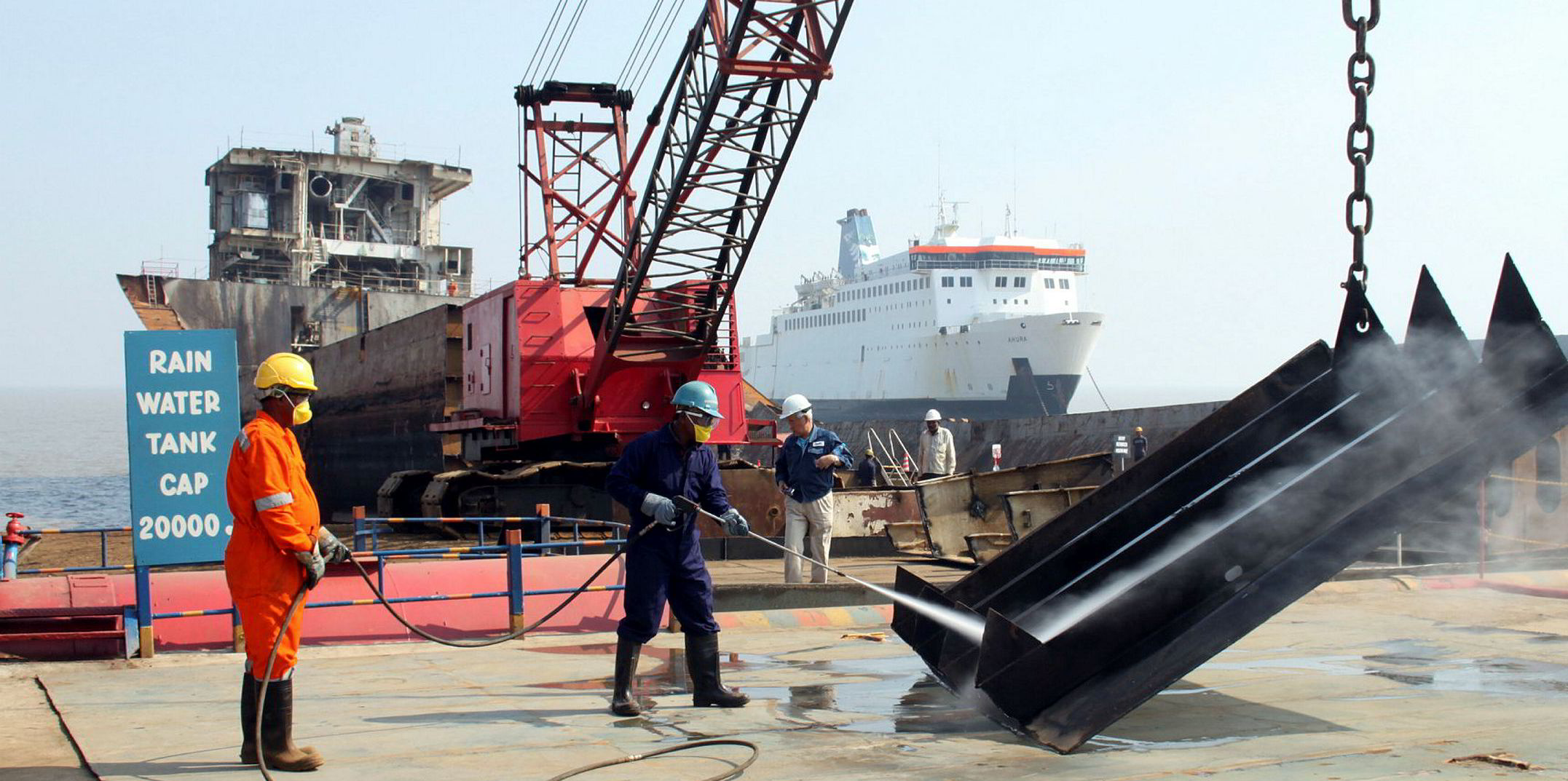Guilty until proven innocent is how the European Union views ship-scrapping yards in the Indian subcontinent, claims GMS chief executive Anil Sharma.
“Absolutely” is his response when asked whether Brussels is prejudiced towards subcontinent scrapping.
Individual states in Europe are charged with monitoring their own yards for inclusion on Brussels’ list of approved facilities for scrapping European-flag tonnage. They are then included if they meet the EU regulation.
But Sharma says yards in southern Asia face “microscopic audits” by the European Commission.
He argues: “It has become a very political thing.”
Meeting needs
Sharma questions the EU’s claim that the approved list can meet demand of EU-flag owners.
“Without India, this EU thing just cannot work,” Sharma says.
Peter Koller, European Commission policy officer for waste management in the Environment directorate, told TradeWinds’ Ship Recycling Forum in Hong Kong this year that the door remained open for Indian shipbreakers to join the list and the approval process was ongoing.
The European Commission has carried out site inspections on four yards in India and, while some are said to be heading towards approval, further improvements are needed.
The same “substantive requirements” apply for yards both within and outside the EU, say sources in Brussels.
Regarding recyclers in Europe already on the list, Sharma says: “There are some opportunistic people who think they can make some money out of it. Recycling is a business where you are either in it or not and to be in you really need to commit the resources.”
Sharma says he still receives proposals, normally from less-developed countries, to assist them in developing a recycling industry.
His advice is to proceed only if they can use the materials domestically, as with India, Bangladesh and Pakistan. Not re-exporting the steel, as with Europe. “You can’t survive on that model,” Sharma claims.
Changing nature
Meanwhile, the nature of ship sale deals has changed since he entered the market.
Two decades ago, 100% of vessels were sold on a delivered basis but in more recent times over 50% have been “as is, where is”.
Firstly, it is easier for an owner to deliver to a cash buyer at the final discharge port of a charter.
And cash buyers have transitioned to being de facto owners themselves, with inhouse technical, management and financial teams to handle the final voyage to the demolition yard.
A second driver has been EU regulation of scrapping, with a strong incentive now to reflag if an owner has his own money tied up in a vessel.

Asked about the growing threat of European trading vessels being targeted by prosecutors, Sharma says it is in no one’s interest to collude with a seller and breach the law.
He says GMS’ compliance department checks every ship entering the market and the background of the owners. The company has become a “very easy target” to criticise.
Sharma also questions the rigidity of the European Ship Recycling Regulation. What happens if a small, EU-flag vessel becomes a constructive total loss in the Far East or Australia and has to be towed back to Europe for scrapping, he asks? Sharma is aware of one potential case but declined to reveal details.
Options facing such an owner are to sink the ship — “creating more and more environmental damage” — or tow to a lay-up facility in the hope a recycling yard in India is eventually approved by Brussels.
“It isn’t just the owner’s problem,” says Sharma. “It is everyone’s problem. I don’t care how much the NGO [Shipbreaking Platform)] wants to shout from the rooftops. It isn’t a sensible regulation.”



